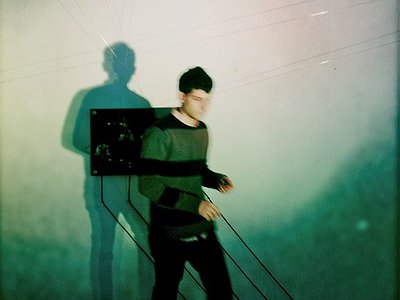The role of an artist is always subject to change. What's your view on the (e.g. political/social/creative) tasks of artists today and how do you try to meet these goals in your work?
I try to connect something very old with something that engages with the core questions that seem important to today. Such as the role of objects in an increasingly fleeting sense of property, etc.
Music-sharing sites and -blogs as well as a flood of releases in general are presenting both listeners and artists with challenging questions. What's your view on the value of music today? In what way does the abundance of music change our perception of it?
I think because music is so devalued in a certain way, therefore it becomes even more sacred in many ways to those who care. The attention to the passing of time becomes precious when things don't move so linearly anymore. Linear thought is really breaking down. Music needs to catch up to this multi - directional way of thinking I suppose. I think once music stops moving from left to right and relying on narrative, working in many directions instead, people will find new interest in it again. Though as far as I can tell music is still really important to most people.
How, would you say, could non-mainstream forms of music reach wider audiences?
It would have to be through personality and character and celebrity. Unfortunately and fortunately I suppose popular culture is more concerned with quick jokes and fashion, dramas, looks etc. which allows the opportunity for virtually anybody with the right idea about this, and money of course, to manipulate the system to break through.
Usually, it is considered that it is the job of the artist to win over an audience. But listening is also an active, rather than just a passive process. How do you see the role of the listener in the musical communication process?
I don't really have a good answer to this. People listen or they don't. I think it's unrealistic for people to think they'll understand all music in two seconds. You aren't born liking all foods, it's unrealistic for people to think they just will 'get' all music as soon as they hear it. Obviously they have to engage. If you listen to two minutes of a La Monte Young piece and then check your phone, you aren't really going to understand the piece. So people need to check in and be there for what the piece really is. At the same time, I don't know if there is a role of the listener per se. I love the idea of music existing outside of a listener.
Reaching audiences usually involves reaching out to the press and possibly working with a PR company. What's your perspective on the promo system? In which way do music journalism and PR companies change the way music is perceived by the public?
I feel it has more to do with saturation. People see a name a bunch of times around and they start to pay attention a little more. On the consumption end it's not that much more complicated than this. Of course this doesn't really answer whether it has anything to do with quality. It seems that basically narrative wins, and that's what PR companies do so well. They craft music ,which to me at it's core is visceral and non-narrative, and turn it around so people can speak and think about it in verbal terms.
Please recommend two artists to our readers which you feel deserve their attention.
I can't help but be biased in saying that I think Ashley Paul and Geoff Mullen's work are really amazing. Also, I've been very interested in Yoshi Wada's music lately. Even though he gets some attention he deserves even more!
Read and hear more Eli Keszler at elikeszler.com



